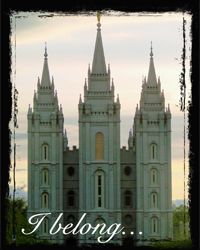Trivia: What are the seven wonders of the ancient world?
Bonus question: What is “herostratic fame”?
In November, I'm going on a 2-week cruise through the Mediterranean. As it turns out, we will go to four of the sites of the ancient wonders of the world -- the pyramids of Egypt (the only remaining wonder), site of the temple of Artemis/Diana in Ephesus (and referenced in NT Lesson 32 as part of Paul's third missionary journey), site of the Colossus at Rhodes, and Alexandria Egypt, near the site of the ancient lighthouse.
The full list of seven ancient wonders:
1. Pyramids of Egypt (at Giza, outside of Cairo)
2. Hanging gardens of Babylon (in modern-day Iraq)
3. Statue of Zeus at Olympia (about 100 miles west of Athens)
4. Temple of Artemis (Diana) at Ephesus (Turkey)
5. Mausoleum at Helicarnassus (Bodrum, Turkey)
6. Colossus of Rhodes (Island of Rhodes, Greece)
7. Lighthouse of Alexandria (Egypt)
The Temple of Artemis was gigantic. In fact, it was one of the largest temples the Greeks ever built . It was made for the goddess Artemis. Artemis, also known as Diana, was the goddess of wild nature and hunting . The temple was famous for its use of marble and for its size. Everything was made of marble except the tiled covered roof. It was very decorative. All 106 columns were twelve meters high (40 feet ). Note this temple was four times bigger than the Parthenon in Athens.
When he saw the temple, Philon, an Athenian architect, wrote: “He who had laid eyes on it will be convinced that the world of the immortal gods has moved from the heaven to earth.”
So, now the bonus question: Bonus: What is “herostratic fame”?
In 356 B.C. a young man, Herostratus, set fire to the temple of Diana in his quest for fame. After the fire, Herostratus proudly claimed credit in order to secure his place in history. In order to dissuade similar-minded fame-seekers, the Ephesean authorities not only executed Herostratus, but condemned him to a legacy of obscurity by forbidding mention of his name under the penalty of death. Obviously, this harsh stipulation did not preclude Herostratus from achieving his goal. The term “herostratic fame” has come to mean “fame at any cost” and sometimes destruction, crime or terrorism for the purpose of self-glorification.


